Explore the Best AI Image Gallery

Beyond the Canvas: How Blockchain is Transforming the Creative Industry
The world of art, music, design, and literature has always been a space of innovation and evolution. Today, a new force is shaping this landscape: blockchain technology. This decentralized, transparent, and secure ledger system is poised to revolutionize how creatives produce, share, and monetize their work, ushering in a new era of ownership and empowerment.
Unlocking Creative Ownership
One of the most significant impacts of blockchain on the creative industry is its potential to give artists true ownership of their creations. Traditionally, intellectual property rights have often been complex and vulnerable to infringement. Blockchain provides a secure and verifiable record of ownership, embedded directly within the digital asset itself. This means that when an artwork, song, or piece of writing is created and tokenized on a blockchain, the artist retains full control over its distribution and usage rights.
New Avenues for Monetization
Blockchain technology opens up exciting new avenues for creators to monetize their work directly. Smart contracts, self-executing agreements stored on the blockchain, can automate royalty payments to artists every time their work is sold or licensed. This eliminates the need for intermediaries and ensures that creators receive fair compensation for their creations.
Non-fungible tokens (NFTs) have emerged as a powerful tool for monetizing digital art and collectibles. An NFT is a unique, indivisible token representing ownership of a specific digital asset. By minting an NFT on a blockchain, artists can create scarce and verifiable versions of their work, which collectors can then purchase and trade.
Empowering Collaborative Creativity
Blockchain fosters a more collaborative and transparent creative ecosystem. Smart contracts can facilitate joint ownership agreements, allowing multiple creators to contribute to a project and share the rewards equitably. This opens up new possibilities for cross-disciplinary collaborations and decentralized art projects.
Navigating Ethical Considerations
As with any emerging technology, blockchain in the creative industry raises important ethical considerations. Concerns around data privacy, security vulnerabilities, and the potential for manipulation need to be carefully addressed.
- Data Privacy: Blockchain transactions are publicly viewable, which can raise concerns about the privacy of sensitive creator information. Its crucial to implement robust privacy-preserving techniques and ensure that users have control over their data.
- Security Vulnerabilities: Like any digital system, blockchain platforms are susceptible to security breaches. Strong security measures must be in place to protect user funds and assets from theft or fraud.
- Accessibility and Inclusivity: Its important to ensure that blockchain technology is accessible to all creators, regardless of their technical expertise or socioeconomic background. Initiatives to provide education and support are essential for promoting inclusivity in the creative space.
Future Trends
The integration of blockchain in the creative industry is still in its early stages, but the potential is immense. Future trends to watch include:
- Metaverse Integration: Blockchain will play a key role in enabling ownership and monetization within virtual worlds and metaverse platforms.
- Decentralized Content Platforms: Blockchain-based platforms could empower creators to bypass traditional intermediaries and directly connect with their audiences.
- AI-Powered Creative Tools: The combination of blockchain and artificial intelligence could lead to innovative tools that assist artists in generating, managing, and monetizing their work.
As blockchain technology continues to evolve, its impact on the creative industry will undoubtedly be profound. By embracing this transformative force, artists, designers, and innovators can unlock new possibilities for expression, collaboration, and ownership, shaping a future where creativity flourishes in a decentralized and empowered world.

](https://images.ai-img.art/thumbnails/150/58fa7e3c741db40e9e61e20410c8d5675b11efb625df109812cc768f9b17b717.webp)
](https://images.ai-img.art/thumbnails/150/bda14621f89269b376d6681934fea3c4af8c5f8593b80e1cb25cdf0047f98621.webp)


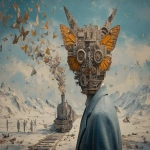

](https://images.ai-img.art/thumbnails/150/266c825c7f03beff90a8a60e36207b8240cdf722eb1cf5db26e8adb51b992287.webp)


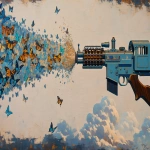
](https://images.ai-img.art/thumbnails/150/f7e46d83151e744219d4886ca1329794d3e9d5071649abea0b2996cb34c3c77c.webp)
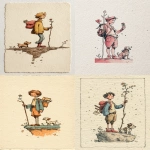

](https://images.ai-img.art/thumbnails/150/396b1c442fa4d576e35f871ba0f3c7e52bb62c6bcee69082dbcb816a5fd3aa8c.webp)
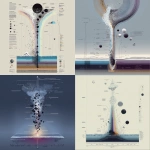
](https://images.ai-img.art/thumbnails/150/2f4f685af05f9526e1ac2f05f53dbb1d97bf8a65f6a41c6e67059c5ed2aa871f.webp)


















](https://images.ai-img.art/thumbnails/150/b814eba984b490e7f87095501b4c13b17e89f8960f044f09fbf2053969d9be29.webp)
](https://images.ai-img.art/thumbnails/150/6650b0d98c6fec81df8bdfb569e0033970b46a653d188dde42417e624901493f.webp)




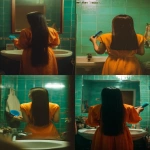
](https://images.ai-img.art/thumbnails/150/230fb1adf4241373591167585daecc4556f4c58c4d0dc33638c62b1c60c1b72a.webp)






](https://images.ai-img.art/thumbnails/150/10ab1dbb1358d3dbba41472a395400bd9daf5cba3f5c8841970b4110820d5a15.webp)